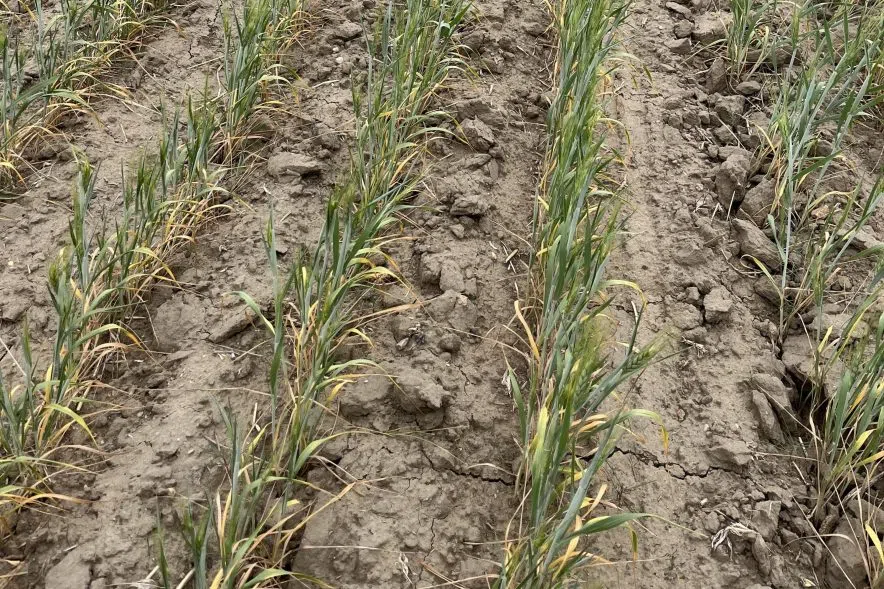Four rural municipalities in southwest Saskatchewan have now declared states of emergency as an unrelenting drought threatens farms, ranches and entire communities.
The RMs of Maple Creek, Fox Valley and Enterprise are the latest to sound the alarm, joining Big Stick in urging provincial and federal governments to respond.
“This spring is one of the worst we’ve seen,” said Maple Creek Reeve Elden Jamieson. “We’ve had less than two inches of rain all year.”
Further east in Enterprise, the numbers are even worse.
“We’ve only received about half an inch of rain between when the snow melted and the end of June,” said Reeve Virginia Maier. “The wheat and barley are trying to survive, but they’re dying at the moment.”
Maier says this year is as bad or worse than 2021, which she described as a “disaster year.” Crops seeded in late May never germinated properly, and there will be no hay crop at all for ranchers.
In Maple Creek, Jamieson said ranchers are already making early decisions just to stay afloat.
“There’s already yearling moving out of the country,” he said. “That usually doesn’t happen until September.”
Read More:
- ‘This is different’: Southwest Sask. famers call for help after nearly a decade of drought
- B.C.’s low snowpack, melt signal drought, raising concern for hydro power
- Wildfire smoke could impact freshly seeded Saskatchewan crop
Both reeves said current insurance programs, especially crop and rainfall insurance, aren’t working in a prolonged drought. In some cases, a single late rainfall can wipe out a claim, even if it arrives too late to save a crop.
“You can be dried right out and get a big rain the last week of June,” Jamieson said. “Then your rainfall insurance is wiped out, even if that rain comes too late to help.”
Maier said the longer the drought goes on, the less insurance pays out.
“They worked at the beginning of the drought nine years ago,” she said. “But now it has been so prolonged, they need to be revamped.”
She said a growing number of producers are nearing a breaking point.
“A lot of our neighbours are very stressed… they’re not sure how much longer they can keep going,” Maier said. “It’s getting tight financially and mentally.”
Both Enterprise and Maple Creek are also under fire bans, as dry conditions raise the risk of wildfires in the region. Jamieson said hauling feed has also become unaffordable due to soaring freight costs.
“The fee cost isn’t that bad when you pick it up,” he said. “But once you get it home, freight kills you.”
Leaders in both RMs said they’re not just asking for temporary relief. They want insurance programs re-evaluated, freight support and long-term plans that reflect the reality of climate-driven drought cycles.
Until then, they said farmers and ranchers will be stuck weathering a crisis that’s no longer temporary.











